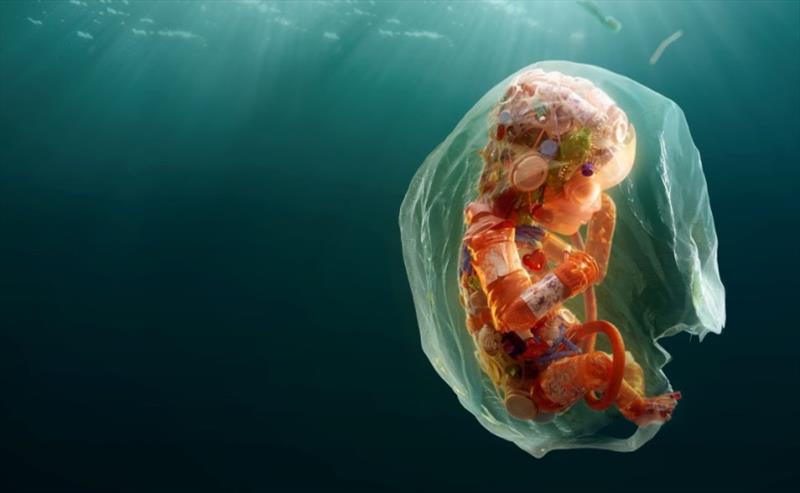
Plastic… it's in your blood!
by Race For Water 14 Mar 2020 16:28 UTC

Plastic… it's in your blood! © The Plastic Health Summit 2019
Construction, transport, agri-foodstuffs, health, cosmetics, toys...plastic is all around us, and even in our bodies, newborns included. Fauna, and especially marine fauna, isn't spared either.
The flexibility in the use of plastic and its low cost mean it is the dominant material in most industrial sectors and has given rise to consumer goods being fully prepared, packaged, and disposable.
In 2018, 413 million tonnes of plastic were produced worldwide!
We are in daily contact with a multitude of plastic-based products, and sometimes unknowingly: synthetic clothing, cigarette butts, carpets, nappies, mattresses and tea bags all contain the material. Even paper cups, cans and some tins hide a plastic membrane.
However, the ubiquity of this popular material and its manufacturing process represent a real danger to public health as you will learn by reading the report by Camille Rollin, in charge of the Foundation's ACT programme, who attended the Plastic Health Summit, the first of its kind to focus on the impact of plastics on health.
In addition to this, the scientists involved with our first Odyssey in 2015 have just published the results of their research into the lifecycles of fish exposed to or having ingested micro-plastics sampled by the Race for Water teams from beaches around the world. The findings prove very interesting!
It's in the air, the sea, and the soil. No wonder then that our food today is contaminated by plastics, with a recent study estimating that humans consume an average of 5 grams of plastic per week; the equivalent of a bank card.
It is time to detox from plastic and to change our mindset around this material.
Solutions do exist; let's endeavour to implement them before it's too late.
Enjoy reading.
The Race for Water team
The Plastic Health Summit - The impact of plastic on our health...
The Foundation was present at the Plastic Health Summit on the 3rd of October in Amsterdam. The main focus of this summit was the impact of plastic on human health.
Many people from the world of science, research and medicine gathered for the occasion to highlight the danger that plastic represents to human health.
Read more details here
An alarming scientific study: Breaking the DNA chain, reduced mobility and high mortality rates
After four years of studies and scientific experiments carried out with our partners from the University of Bordeaux, ONIRIS in Nantes and EPFL (Ecole Polytechnique Fédérale de Lausanne), new enlightening results from the 2015 Race for Water Odyssey have just been published, revealing the toxicity of environmental micro-plastics on fish during the early stages of their life.
Read more details here